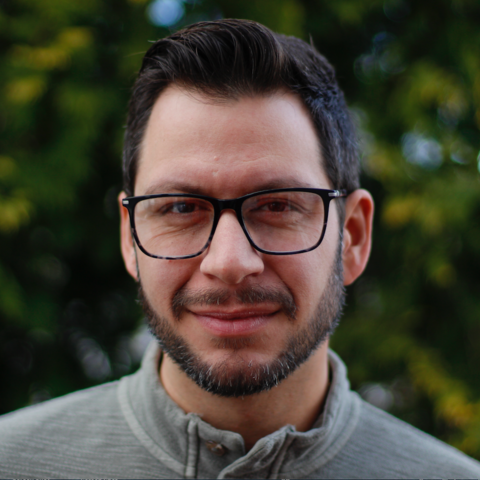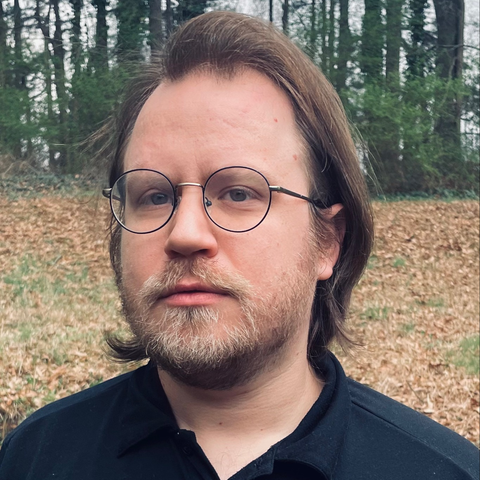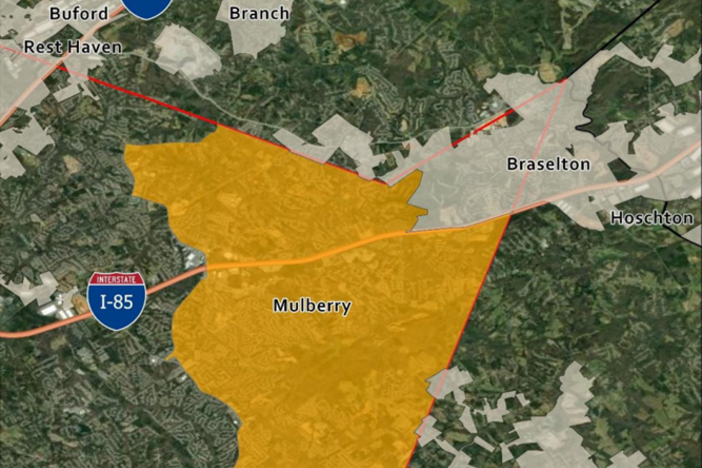
Section Branding
Header Content
Georgia Today: Kemp goes to Texas; Cash bail requirements lengthened; Georgia artists win Grammys
Primary Content
On the Monday, Feb. 5 edition of Georgia Today: Gov. Brian Kemp heads to Texas for a showdown with the U.S. government over immigration enforcement; the state senate passes a bill lengthening the list of crimes requiring cash bail; and Georgia musicians take home Grammys at last night's awards ceremony.

Peter Biello: Welcome to the Georgia Today podcast from GPB News. Today is Monday, Feb. 5. I'm Peter Biello. On today's episode, Gov. Brian Kemp heads to Texas for a showdown with the U.S. government over immigration enforcement. The state Senate passes a bill lengthening the list of crimes requiring cash bail. In Georgia, musicians take home Grammys at last night's award ceremony. These stories and more are coming up on this edition of Georgia Today.
Story 1:
Peter Biello: Vending machines carrying opioid overdose reversal drugs are at the center of a bill moving through the Georgia House that aims to make more drugs available to combat deaths from overdose. GPB's Sofi Gratas has more.
Sofi Gratas: Narcan, the most popular brand of naloxone, is free at multiple locations across the state, mostly from addiction and recovery groups. But state Rep. Sharon Cooper, sponsor of House Bill 1035, says she wants to make opioid overdose reversal drugs even more widely available. As Georgia law stands, pharmacies face misdemeanor charges if they distribute drugs like Narcan through vending machines. Cooper's bill would change that.
Sharon Cooper: Once we update this law, I think you will find probably vending machines on all our college campuses.
Peter Biello: And in other places, too. The bill would also give Georgia's public health commissioner the go ahead to approve similar drugs over-the-counter, like the lesser known Nalmefene and Naltrexone. For GPB News, I'm Sofi Gratas.
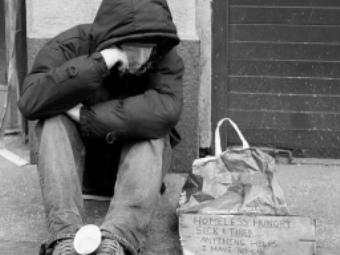
Story 2:
Peter Biello: Georgia will receive a 16% increase in federal funding to combat homelessness compared to last year. GPB's Benjamin Payne reports.
Benjamin Payne: The $58 million from the U.S. Department of Housing and Urban Development will go towards so-called continuum of care projects across the state, including in Savannah. That's where HUD Secretary Marcia Fudge visited this week to announce the department's funding for programs throughout the country.
Marcia Fudge: I could have gone anywhere. But I chose Savannah. And I know that you are going to do the work that is needed to be done. I know that you're going to treat the people that we serve with the utmost respect. You're going to help them get their lives back together, because this nation should be what everybody thinks it is.
Benjamin Payne: Nationwide, more than $3 billion will be spent by HUD on continuum of care projects this year, the highest amount in program history. For GPB News, I'm Benjamin Payne in Savannah.
Story 3:
Peter Biello: Isabel Guzman, who leads the Small Business Administration, visited Clark Atlanta University today to promote small business resources to students. GPB's Sarah Kallis reports.
Sarah Kallis: Guzman told students that Atlanta boasts high rates of entrepreneurship among Black and brown people, and that small business ownership can help bridge the racial wealth gap. She says cities like Atlanta represent hope and opportunity.
Isabel Guzman: And our nation needs to prove that we can overcome barriers for those very entrepreneurs because they're starting businesses at a high rate.
Sarah Kallis: Guzman says entrepreneurs in Georgia have filed 827,000 new business applications since she became the SBA administrator in 2021. But growing costs of capital and high interest rates continue to pose challenges for small business owners. For GPB News, I'm Sarah Kallis in Atlanta.

Story 4:
Peter Biello: The state Senate has passed a bill that would lengthen the list of crimes that require cash bail for a person to be released from jail before trial. Senators approved the measure 30 to 17 on Thursday. The bill would require cash bail for an additional 30 crimes, including 18 offenses that are always or often misdemeanors. Its Republican supporters say the measure is aimed at making communities safer. But its Democratic opponents, including Atlanta state Sen. Josh McLaurin, worry Georgia is backsliding on criminal justice reform championed by Republican Gov. Nathan Deal in 2018.
Josh McLaurin: When we say, as a matter of general statute law, that jail is where we want people to be, and we create structural incentives for people to end up there, those funnels are going to funnel people there.
Peter Biello: The bill is now one vote away in the state House from final passage.
Story 5:
Peter Biello: Gov. Brian Kemp joined more than a dozen other Republican governors yesterday at the U.S.-Mexico border crossing in Texas. They'd gathered to support Texas Gov. Greg Abbott's showdown with the White House over immigration enforcement. For nearly a month, Texas has restricted U.S. Border Patrol's access to an area along the border. They're accusing the Biden administration of not being tough enough on crossings. Kemp says the country is not secure.
Brian Kemp: Our country is not secure, and Joe Biden's policies are making our country less safe. And that's what we're here documenting today and standing with Gov. Abbott that's trying to do something about that.
Peter Biello: Abbott's Democratic critics accuse the Texas governor of a political stunt to use the state militia to defy a Supreme Court ruling.
Story 6:
Peter Biello: Metro Atlanta's DeKalb County is delaying enforcement of a new ordinance requiring all convenience stores to install video surveillance equipment. County officials say only 69 out of 213 affected businesses are currently in compliance with the measure, which is aimed at crime reduction and went into effect last year. Officials now say businesses have until July 1 to prove compliance.
Story 7:
Peter Biello: Electric car manufacturer Rivian has set a date to reveal the model of its next-generation vehicle, the one it plans to build at a facility in Georgia. The company posted on social media this morning, quote, "Get ready to meet R2 on March 7." No other details were provided, but Car and Driver reports the company received approval for a worldwide product launch event in Laguna Beach, California on the same day. Rivian plans to build the R-2, a compact SUV, at a $5 billion plant to be constructed in Morgan and Walton counties, east of Atlanta.

Story 8:
Peter Biello: Algae levels in West Point Lake on the Chattahoochee River downstream of Atlanta, are at their highest in more than a decade. The Chattahoochee Riverkeeper says the levels now exceed state standards, indicating an overall decline in the lake's health. Riverkeeper Jason Ulseth says the data released last week is disappointing, given how much the watershed has improved.
Jason Ulseth: 30 years ago, the major problem in the source of pollution at West Point Lake was easily identified. It was Atlanta's sewage system, and we targeted that. We got it fixed. Now we have to consider all the stormwater runoff that's continuing to come from not only the existing pavement, but all of the new pavement that get put into our watershed every single day.
Peter Biello: He says high algae levels set up potential effects such as fish kills and foul-tasting drinking water.
Story 9:
Peter Biello: Celebrated American novelist and short story writer Flannery O'Connor was born in Savannah and spent much of her life in Milledgeville. When she died at the age of 39, in 1964, she left behind an unfinished third novel titled Why Do the Heathen Rage? For more than a decade, award-winning author Jessica Hooten Wilson has explored the nearly 400 pages of typed and handwritten material that O'Connor worked on for the novel. She spoke with GPB's Orlando Montoya about Why Do the Heathen Rage? and her publication of the story.
Jessica Hooten Wilson: One of the things I tried to make sure and highlight on the front is that it's unfinished and it's a work in progress, because the novel is not done, it's incomplete. And what she ended up doing is writing the same episode so many different times in the 400 pages that she left us, that we we really just get a bunch of background of these different characters. We get to see that she was working through who they were going to be and how they were going to come together. But the plot doesn't take off. There's no catalyst for action, and you're kind of always left hopeful of what could have been with the story, rather than getting to see what was.
Orlando Montoya: So if I could describe what this book is, the one that I have in my hand right now is that you edited the scenes. So in other words, you had this 400 pages that she wrote and rewrote, but you edit them down into these scenes, and then you explain the scenes, and then you sort of give your idea of what might have happened if she had completed it. Is that a good way of describing what you've done?
Jessica Hooten Wilson: That's fantastic. Yes. So, I mean, I really was immersed in Flannery for the last several decades, and so I was able to kind of provide more context for why these different scenes matter. I put the scenes together, hopefully choosing pieces that she would have wanted the public to see, and then kind of having a literary excavation — why did, what's going on here? What was she reading? What was she thinking about? And based on that information, could we predict where it would have gone?
Orlando Montoya: The story involves two main characters, Walter and Oona. Walter reads a newspaper, a small radical newspaper, and gets the idea that he wants to meet this Oona. Except Walter is white and he's pretending to be Black so that he can meet Oona. And it's absurd in some way, but I think Flannery is absurd in a lot of ways.
Jessica Hooten Wilson: Right? She's definitely turning things inside out. It's a farcical characterization. You have this intellectual who thinks he can test the love of people, Oona Gibbs, who professes to love everybody, and this is in the middle of the civil rights era. And he says, "well, you wouldn't love me because I'm Black." And of course, he can pretend to be whoever he wants to be because he's writing through the mail and he thinks there's no way they'll ever meet. Only that's, of course, where the novel would begin.
Orlando Montoya: So because this is an unfinished work, we don't really get a denouement, or we don't get any kind of idea of when this lightning might strike. But there was, I think it was on page 94, where Walter is standing on the rock, and he talks about not being a Christian and finding a realization. Is that sort of the — the pivotal point of this story?
Jessica Hooten Wilson: So this is why I wanted to publish these unfinished scenes, because she's trying something different than she's done before. In her other work, she has these more violent episodes where people are scandalized by the truth. So you get gored by a bull, or you get, you know, hit in the head with a — a psychology textbook. Right? These are some of her quintessential episodes. She said that in this book, she wanted to talk differently to the reader. She wanted God's voice to be kind of a still, small, quiet voice instead of a loud roar. And so Walter is sitting there and kind of coming to a realization that maybe he actually believes all the things that he's been reading. Maybe the truth is outside of himself, and he can't stand above it, because that's what Oona's doing. From his perspective, she's standing in the place of God, and he too was there with her. Now we don't get to see what happens from there. It's my idea that I think he would have become a holy fool. I think she would have written an entire novel in which the salvation story comes at the beginning, and it's not the epiphany at the end. And then we would have got to see Walter's character as he kind of lives this out.
Orlando Montoya: Another way that this story seems to verge from what Flannery O'Connor did, might have been a way that she was going, was that O'Connor was grappling with issues of social justice and fairness. Would you agree with that statement?
Jessica Hooten Wilson: Yes, absolutely. One of the reasons I — I was going back and forth about even whether to publish this, there's all sorts of ethical questions, you know, do you publish a posthumous work? But in this work, one of the reasons I very much wanted to put it out there is because a few years ago, there was the New Yorker piece, "How Racist was Flannery O'Connor?" And there was so much confusion because people thought she never dealt with social justice questions, that she always put to the side those issues. In reality, she was meditating on them, ruminating on them, trying to write a novel that would have taken her a lot of time to do well. She wanted to really deal with some of the questions going on around her in a way that — that art could do best.
Orlando Montoya: My question to you is that, you know, of course, it gets difficult very quickly with Flannery. Does she have the right to do that, when she's she has this character that's white pretending to be Black. We don't know what's going to go on there, but but does she have the right to do that when, when she — she doesn't understand.
Jessica Hooten Wilson: She can't understand what exactly —?
Orlando Montoya: What it's like to be — what it's like to be Black.
Jessica Hooten Wilson: Oh, right. What's — that's one of the questions she asks. So Walter is pretending to be Black, and Flannery wrestled with who knows what. You know, she always lists out people that she knew in real life. "Who knows what they think? Because I'm not Black. How do I get into their minds?" Well, and I had a friend early on who I was reading this material, too, and he said, "that's problematic. She should know enough about humanity that she's able to have other people's perspectives, even the Black perspective, and try to write from a human standpoint." Now, Flannery did not have enough perspective, I think, to do that at the time. She's living in a very segregated world, so even some of her greatest admirers from African-American scholars like Hilton Als talks about how, you know, she caricatures them. She makes them into — she makes when two Black people are talking to each other, she just didn't know how that conversation would really happen. She only knew how two Black people would talk when a white woman was in the room, because that was her experience. And then, of course, she doesn't portray it with the reality that it deserved.
Orlando Montoya: This is not for first-time readers of Flannery O'Connor. If you want to start with Flannery O'Connor, maybe start somewhere else. A lot of this is just maybe not understandable until, you know Flannery O'Connor's work before. Also, it's — like I said, it's fragments, so you really don't get a story. So it could be it could be disappointing if someone just sort of starts out here.
Jessica Hooten Wilson: I agree that this should not be the first thing someone is going to read Flannery O'Connor would read. Instead, a lot of times I recommend — I think I recommend this in the book — people should be reading Parker's Back or Revelation to start with. And really kind of go in more gently with Flannery, with characters who don't die, before they start trying to read the characters that do die. But once you start reading Flannery O'Connor stories and you get more familiar with them, I think you'll understand why this material matters. Because it reminds all of us that we are in process, that writers are all in process. And I also hope it gives people the pleasure of seeing that Flannery was growing and changing, like all of us are.
Orlando Montoya: It's been a pleasure. Thanks for joining us.
Jessica Hooten Wilson: Yes, thank you so much.
Peter Biello: That was GPB's Orlando Montoya speaking with Jessica Hooten Wilson, author of the new book, Flannery O'Connor's Why Do The Heathen Rage?: A Behind the Scenes Look at a Work In Progress.
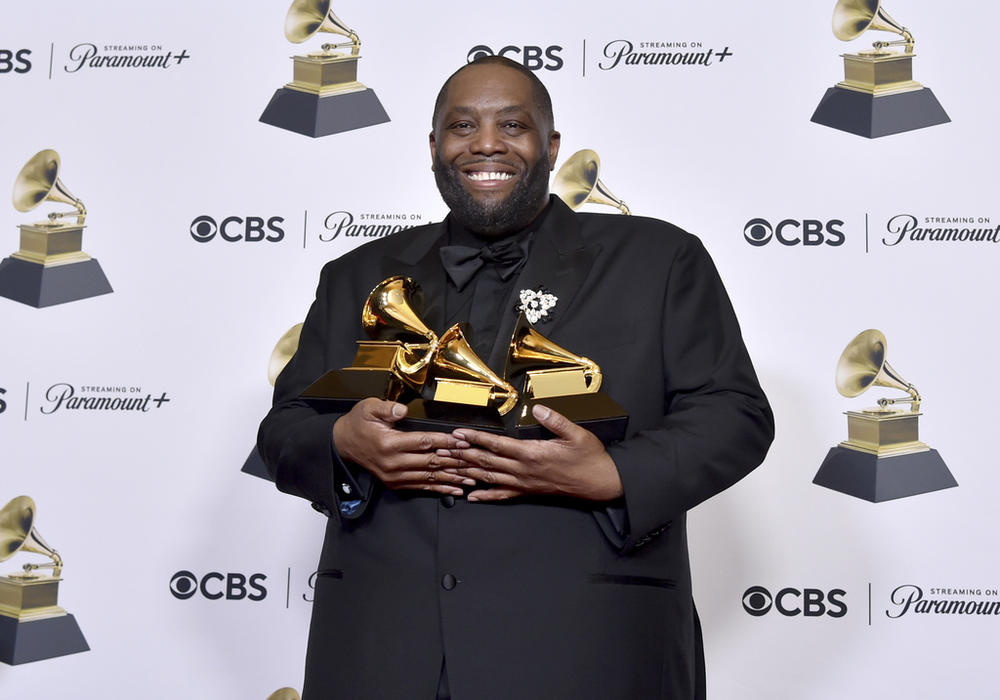
Story 10:
Peter Biello: Several Georgia musicians took home Grammy Awards last night at the ceremony in Los Angeles. Atlanta singer songwriter Victoria Monét was the lone Georgian to make it to the podium during the televised broadcast. She was a surprise pick for Best New Artist. Kennesaw's Theron Thomas won for Songwriter of the Year, Non-Classical. Calhoun's Larkin Poe won for Best Contemporary Blues Album, and Atlanta's Lecrae won in two contemporary Christian categories. But the headlines were dominated by Atlanta rapper Killer Mike. Shortly after winning three rap awards, including Best Rap Album, he was arrested and taken away in handcuffs after a physical altercation. LA police charged him with misdemeanor battery.

Story 11:
Peter Biello: Atlanta will host eight matches of the FIFA World Cup in 2026, including a semifinal match. GPB's Orlando Montoya reports the announcement puts another golden feather in Atlanta's soccer cap.
Orlando Montoya: Atlanta found out in 2022 that it was among 16 cities in the U.S., Canada and Mexico selected to host World Cup matches. But the number and level of those games weren't revealed until Sunday. MetLife Stadium in New Jersey was the winner of the final match. Atlanta's Mercedes-Benz Stadium will host a semifinal match, two round of 32 matches and five group stage matches, for a total of eight. The only city to host more is Dallas, with nine. The announcement comes months after U.S. soccer said it was moving its headquarters to Fayette County, south of Atlanta, and months after two international soccer bodies said Atlanta would host the opening game of the Copa America tournament in June. For GPB News, I'm Orlando Montoya.
Peter Biello: And that is it for today's edition of Georgia Today. If you want to learn more about any of these stories, visit GPB.org/news. And we'll be coming back at you tomorrow afternoon. Make sure you subscribe to this podcast, and we'll pop up in your podcast feed automatically. If you've got feedback or a story idea, send us an email. The address is GeorgiaToday@GPB.org. I'm Peter Biello. Thank you again for listening. We'll see you tomorrow.
---
For more on these stories and more, go to GPB.org/news
